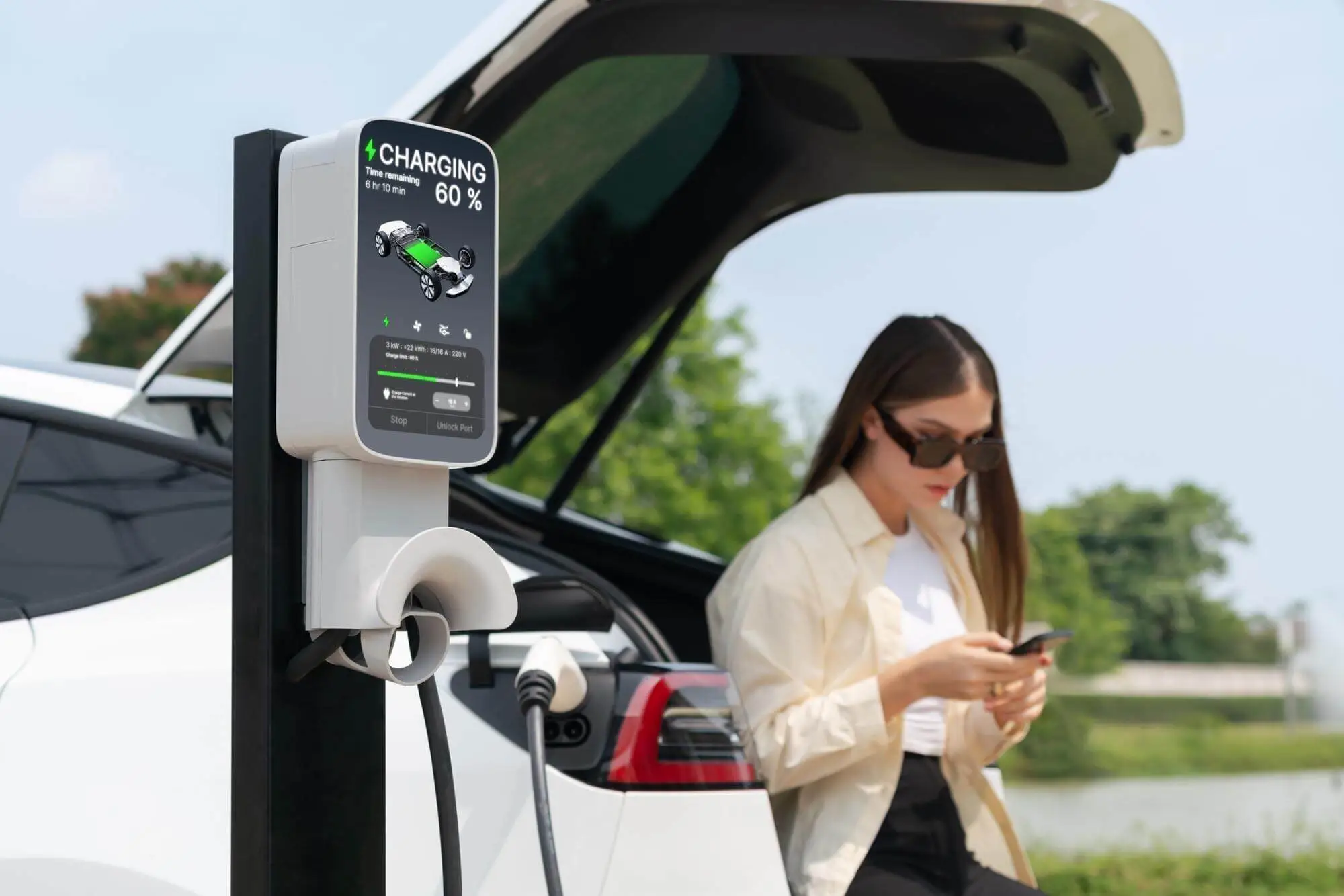2025 Road Tax Changes Explained
The UK government’s upcoming changes to vehicle excise duty (VED), set to begin in April 2025, are making waves among drivers, particularly electric vehicle (EV) owners. These revisions mark a pivotal moment in the nation’s transition to cleaner transportation, aiming to balance the tax system while addressing the growing number of EVs on the road. While the changes bring new costs for drivers, they also hint at a more sustainable and equitable future for all. Let’s dive into the details and explore the bigger picture.
What’s Changing?
EVs and Road Tax:
- Electric, zero or low emission cars registered on or after April 1, 2025 will no longer be exempt from VED. Instead, they will pay a first-year rate of £10, followed by the standard annual rate of £195 from the second year onwards.
- Electric, zero or low emission cars registered between April 1, 2017, and March 31, 2025 will pay the standard rate of £195 starting April 2025.
- Electric, zero or low emission cars registered between March 1, 2001, and March 31, 2017 will move to the first band with a VED value, set at £20 annually.
Hybrid and Alternative Fuel Vehicles (AFVs):
- The £10 annual discount for hybrid and AFVs will be removed. The rate payable will depend on when the vehicle was registered:
- Registered before April 1, 2017: The rate will depend on the vehicle’s CO₂ emissions. Current rates can be checked on the GOV.UK website.
- Registered on or after April 1, 2017: You will pay the standard annual rate of £195.
EVs and Road Tax:
- Electric, zero or low emission cars registered on or after April 1, 2025 will no longer be exempt from VED. Instead, they will pay a first-year rate of £10, followed by the standard annual rate of £195 from the second year onwards.
- Electric, zero or low emission cars registered between April 1, 2017, and March 31, 2025 will pay the standard rate of £195 starting April 2025.
- Electric, zero or low emission cars registered between March 1, 2001, and March 31, 2017 will move to the first band with a VED value, set at £20 annually.
Hybrid and Alternative Fuel Vehicles (AFVs):
- The £10 annual discount for hybrid and AFVs will be removed. The rate payable will depend on when the vehicle was registered:
- Registered before April 1, 2017: The rate will depend on the vehicle’s CO₂ emissions. Current rates can be checked on the GOV.UK website.
- Registered on or after April 1, 2017: You will pay the standard annual rate of £195.
What’s Changing Ctd.

What’s Changing Ctd.
Electric Vans:
- Most electric vans will transition to the standard annual rate for light goods vehicles. Check the current rates for these vehicles for more details.
Electric Motorcycles and Tricycles:
- These vehicles will move to the annual rate for the smallest engine size. Current rates can be found on GOV.UK.
Expensive Car Supplement:
- New electric and zero emission vehicles registered on or after April 1, 2025, with a list price exceeding £40,000, will attract the standard rate of £195, plus an additional “expensive car supplement” of £310 annually for the first five years from the start of the second licence.

Why Are These Changes Happening?
The government’s rationale for these changes is twofold: to create a fairer taxation system and to fund the infrastructure needed for the country’s growing EV population. With the number of electric vehicles on UK roads increasing rapidly, the exemption from road tax is no longer sustainable. Introducing VED for EVs ensures all drivers contribute to maintaining and improving the nation’s road network.
The government’s rationale for these changes is twofold: to create a fairer taxation system and to fund the infrastructure needed for the country’s growing EV population. With the number of electric vehicles on UK roads increasing rapidly, the exemption from road tax is no longer sustainable. Introducing VED for EVs ensures all drivers contribute to maintaining and improving the nation’s road network.
Leasing Considerations
If you lease your vehicle, there’s some relief: road tax is typically included in your lease agreement. This means the funder or leasing company will handle the payment, sparing you the administrative burden. However, it’s worth confirming with your leasing provider how these changes might influence future contracts or monthly payments.
If you lease your vehicle, there’s some relief: road tax is typically included in your lease agreement. This means the funder or leasing company will handle the payment, sparing you the administrative burden. However, it’s worth confirming with your leasing provider how these changes might influence future contracts or monthly payments.
Addressing Public Concerns
The news of these changes has sparked lively discussions, with many drivers voicing concerns about affordability, clarity, and the broader impact on EV adoption. Let’s address some of the key concerns raised:
- Confusion Over Rates: Many EV owners are puzzled by conflicting information about the VED rates for older vehicles. One commenter aptly put it: “The GOV.UK website shows both £10 and £20 for pre-2017 EVs; which is correct?” While the £20 rate has been clarified, this confusion underscores the need for clear and consistent communication from official sources.
- Impact on Affordability: Some worry that adding road tax to EVs might discourage potential buyers, slowing the transition to greener transportation. A driver commented, “Adding road tax to EVs could discourage people from making the switch, which seems counterproductive to environmental goals.” It’s a valid concern, but incentives like grants for EV purchases and investment in charging infrastructure remain key pillars of the UK’s green strategy.
The news of these changes has sparked lively discussions, with many drivers voicing concerns about affordability, clarity, and the broader impact on EV adoption. Let’s address some of the key concerns raised:
- Confusion Over Rates: Many EV owners are puzzled by conflicting information about the VED rates for older vehicles. One commenter aptly put it: “The GOV.UK website shows both £10 and £20 for pre-2017 EVs; which is correct?” While the £20 rate has been clarified, this confusion underscores the need for clear and consistent communication from official sources.
- Impact on Affordability: Some worry that adding road tax to EVs might discourage potential buyers, slowing the transition to greener transportation. A driver commented, “Adding road tax to EVs could discourage people from making the switch, which seems counterproductive to environmental goals.” It’s a valid concern, but incentives like grants for EV purchases and investment in charging infrastructure remain key pillars of the UK’s green strategy.
A Hopeful Outlook

A Hopeful Outlook
While these changes introduce new costs, they also pave the way for a brighter, greener future. The revenue generated from VED can be reinvested in developing a robust EV charging network, ensuring that drivers can travel the length and breadth of the UK without worrying about range anxiety. Moreover, as EV technology advances and economies of scale bring down manufacturing costs, the overall cost of ownership for electric vehicles is expected to decrease.
The transition to electric vehicles represents a monumental shift in how we approach transportation and environmental responsibility. These road tax changes, though initially challenging, reflect a growing recognition of the need for long-term sustainability. By contributing to the upkeep of roads and supporting the expansion of EV infrastructure, drivers are playing a part in shaping a cleaner, more efficient future for everyone.
What Can You Do?
As these changes approach, it’s essential to stay informed and plan accordingly. Here are a few steps you can take:
- Understand Your Vehicle’s Tax Band: Check the official GOV.UK website to confirm the VED rate for your vehicle and prepare for the upcoming changes.
- Consider Leasing: If you’re thinking about switching to an EV, leasing could be a cost-effective option, as it often includes road tax in the agreement.
- Embrace the Shift: Remember that the transition to EVs is part of a larger movement toward sustainability. By adopting cleaner technology, you’re contributing to a healthier planet for future generations.
As these changes approach, it’s essential to stay informed and plan accordingly. Here are a few steps you can take:
- Understand Your Vehicle’s Tax Band: Check the official GOV.UK website to confirm the VED rate for your vehicle and prepare for the upcoming changes.
- Consider Leasing: If you’re thinking about switching to an EV, leasing could be a cost-effective option, as it often includes road tax in the agreement.
- Embrace the Shift: Remember that the transition to EVs is part of a larger movement toward sustainability. By adopting cleaner technology, you’re contributing to a healthier planet for future generations.
The Road Ahead

The Road Ahead
The UK’s road tax changes are a reminder that progress often comes with growing pains. While these adjustments may feel like a setback for some, they ultimately signal a commitment to a more sustainable future. By addressing public concerns, improving communication, and reinvesting in green infrastructure, the nation is taking meaningful steps toward cleaner transportation and a healthier environment. The road ahead might be challenging, but it’s leading us to a destination worth striving for.